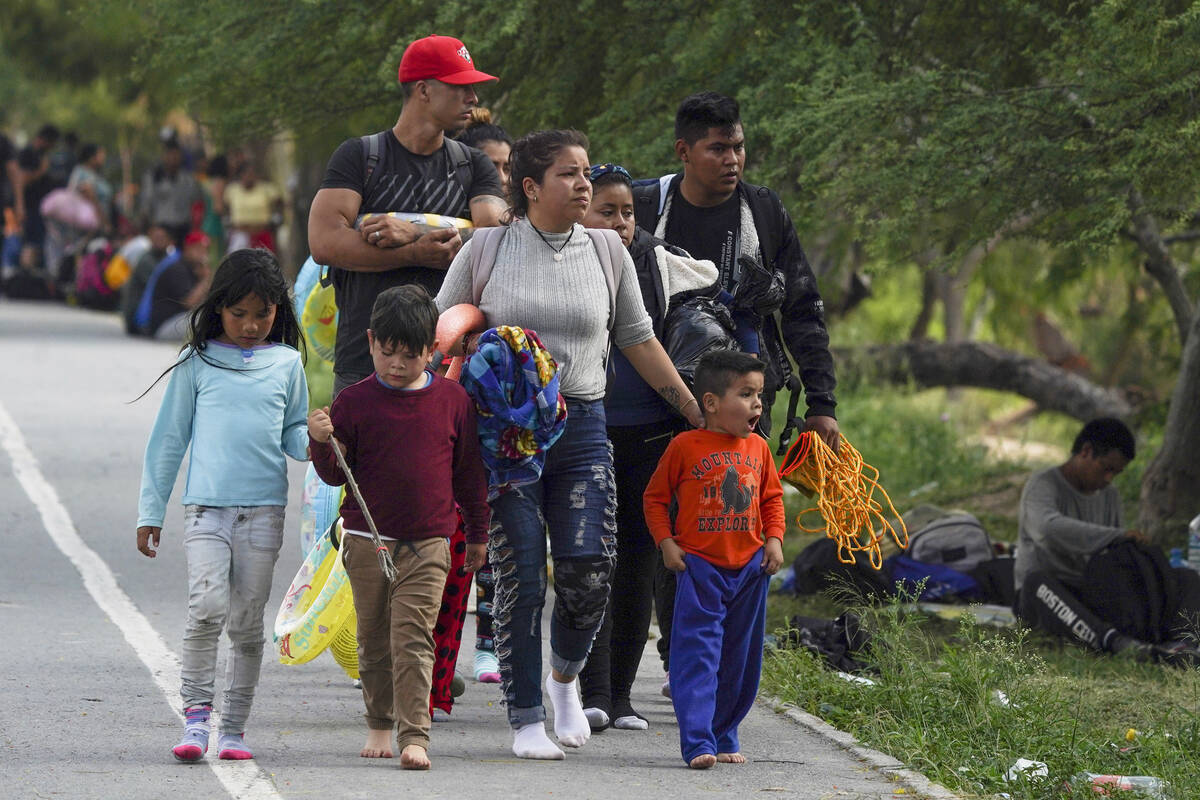COMMENTARY: Mass deportations are unfeasible and expensive

Donald Trump has promised to carry out the largest deportation of undocumented immigrants in American history. His appointment of Thomas Homan, a former acting director of Immigration and Customs Enforcement, as border czar signals his commitment to that promise.
There are 11.7 million people residing in the United States illegally. “Bottom line,” says Homan, “if you’re in the country illegally, you’re not off the table.”
Realistically, however, it is hard to imagine carrying out a mass deportation anywhere close to that number. The huge costs involved — including the not-inconsequential hidden costs — are almost certain to limit its scale.
While discussing executive orders being written for the president to sign immediately after his inauguration, Trump transition team spokeswoman Karoline Leavitt said, “On Day One he’s going to open the largest deportation of illegal immigrants in American history.” As Homan has stated, “Of course, there has to be historic deportation.”
What would constitute a “historic deportation”? During Trump’s first term, his administration deported 1.5 million undocumented immigrants. President Joe Biden is on pace to deport the same number by the time he leaves office. Approximately 3 million people were deported during President Barack Obama’s eight years in office. So for the past 16 years, “normal” deportations have averaged 375,000 a year.
The bulk of those deported were people apprehended after recently crossing the border. Deportations from the U.S. interior have averaged 100,000 annually for the past decade.
What would it take to double or triple those numbers? First, there are not enough detention facilities to house millions of immigrants, nor are there enough immigration courts to process their cases for any immediate mass deportation.
The American Immigration Council, a pro-immigration advocacy organization, recently estimated that, if sufficient detention facilities were constructed and nearly 1,000 immigration courts established, it would take a decade and cost almost $1 trillion to remove the undocumented immigrant population from the United States.
Trump says, “It’s not a question of a price tag. It’s not — really, we have no choice” other than mass deportation.
However, the costs of removal are only the tip of the iceberg. There are other costs.
For example, Trump has stated that he wants to make housing more affordable and decrease grocery prices. That won’t happen if homebuilders and food producers have to replace the nearly 1.6 million undocumented construction workers (25 percent of the total nationwide) and the tens of thousands of undocumented farm workers (more than 40 percent of the total) they now employ. Any mass deportation would drastically shrink the labor supply in these industries and increase consumer costs.
Mass deportations also would undermine Trump’s promise to reinvigorate the economy. The AIC study estimates that a mass deportation would shrink the U.S. economy — that is, lower the overall gross domestic product — by 4.2 percent to 6.8 percent.
A smaller and more targeted deportation seems likely, given the massive costs that counter Trump’s other goals. Homan has stated, “You’ve got to prioritize where you go first” when choosing who to deport and “we’re going to concentrate on the worst of the worst.”
According to a recent House Judiciary Committee report, ICE currently has a list of 617,607 non-detained undocumented immigrants who have been convicted of a crime or have pending criminal charges. Presumably, they would constitute the “worst of the worst.”
Trump should concentrate his deportation agenda on this group: immigrants who are here illegally and who have committed serious crimes. Such a program would be logistically feasible, entail lower economic costs, wouldn’t undermine his other policy goals and could still allow Trump to claim that he’s delivered a “historic deportation.”
Any mass deportation of non-criminal immigrants from the American interior will entail significant economic costs, tear hardworking families apart, and probably create serious public backlash.
Trump would be more successful if he focused on deporting only criminals, while securing the border and opening greater paths for legal immigration to help fuel our economy.
Benjamin Powell is a senior fellow at the Independent Institute and is the director of the Free Market Institute and a professor of economics at Texas Tech University. He wrote this for InsideSources.com.